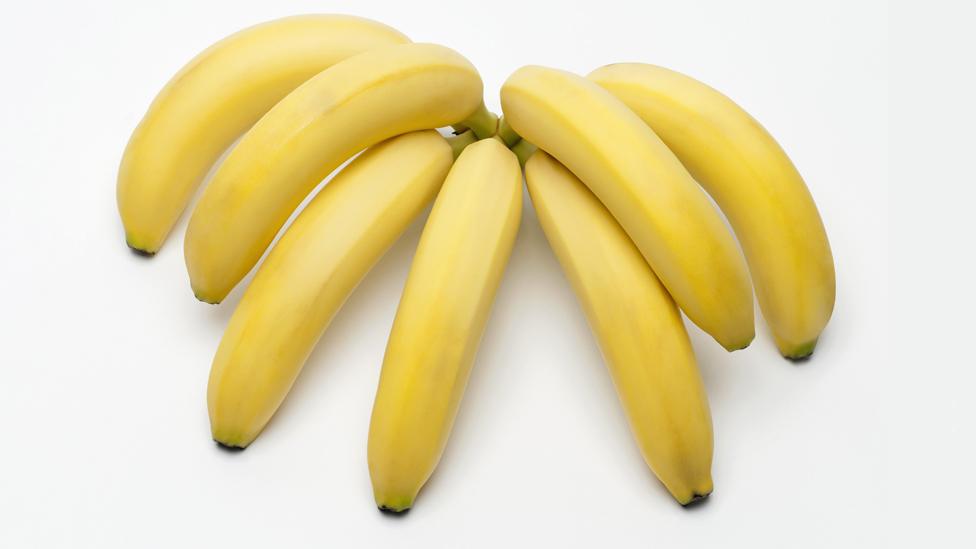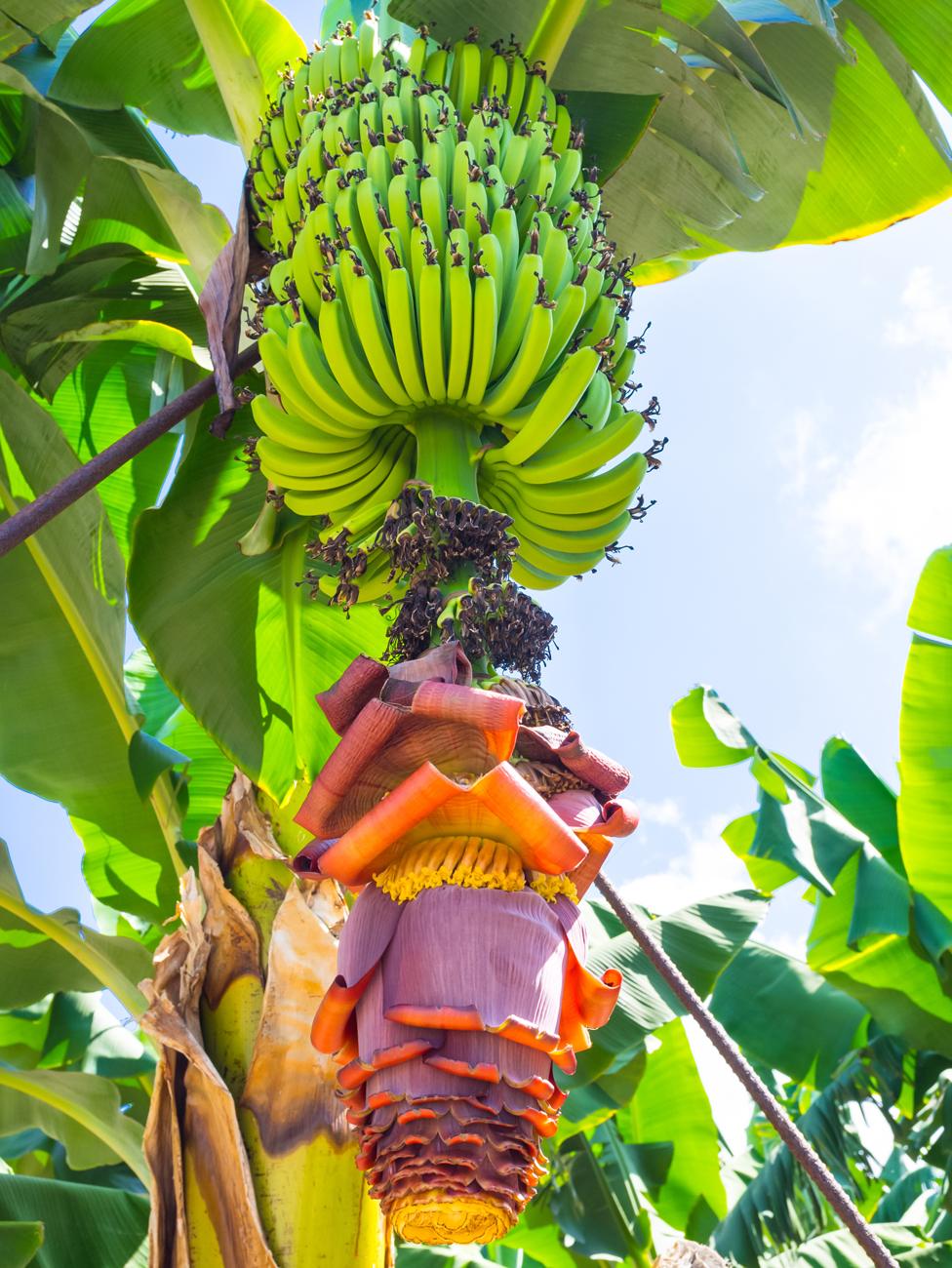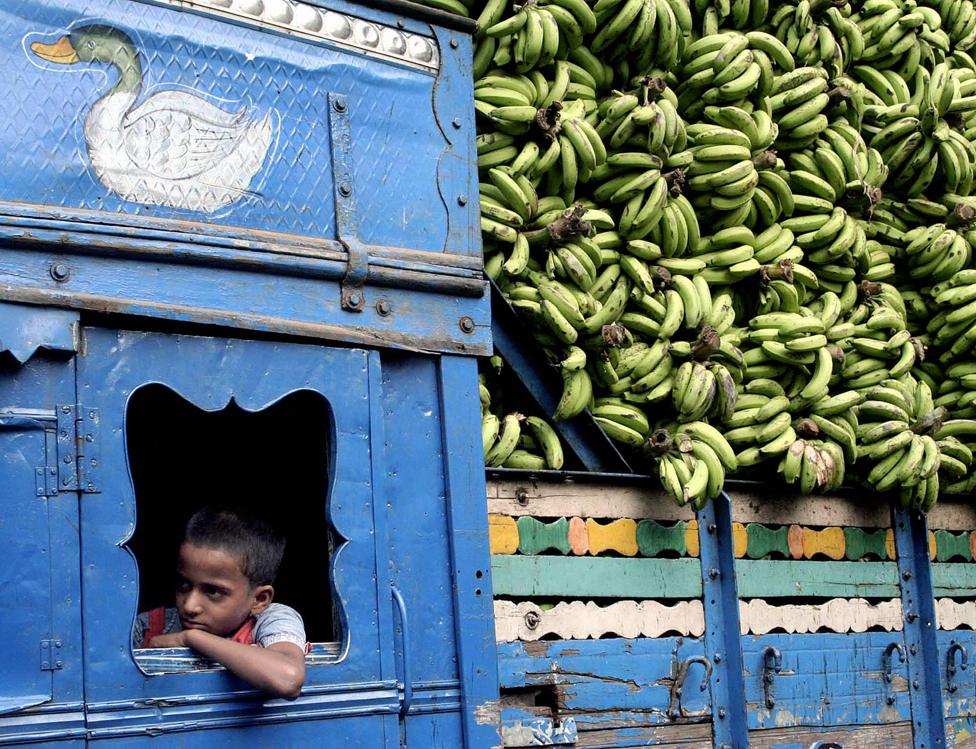Can eating more than six bananas at once kill you?
- Published

It's sometimes said that eating a lot of bananas at once could be dangerous - it has even been suggested that eating more than six in one sitting could kill you. Can this really be true?
Bananas are one of the world's most popular fruits, stuffed with vitamins and minerals. On the face of it they are good for you, so why do some people think they could be fatal?
One well-known figure who has spread this idea around is Karl Pilkington, the grumpy friend of comedian Ricky Gervais.
"Before when you were talking about bananas... I had that fact, about if you eat more than six, it can kill you," he said in one of his conversations with Gervais and fellow comedian Stephen Merchant, external.
"It is a fact. Potassium levels are dangerously high if you have six bananas... I saw a bowl of bananas. There's six bananas there. You know why there's only six? Seven would be dangerous."
So how dangerous is potassium? Actually, it is crucial for survival and can be found "within every single cell of the body," says Catherine Collins, a dietitian at St George's Hospital in London.
"We use it to help generate an electrical charge which helps the cell function properly. It helps keep your heart rate steady, it helps trigger insulin release from the pancreas to help control blood sugars, and more importantly keeps blood pressure in check."
On the other hand, if the level of potassium in the body is too low or too high it can result in an irregular heartbeat, stomach pain, nausea and diarrhoea. Potassium chloride is even one of the chemicals used in lethal injections in the US, as extremely high doses can cause cardiac arrest.

But for a healthy person, "it would be impossible to overdose on bananas," says Collins. "You would probably need around 400 bananas a day to build up the kind of potassium levels that would cause your heart to stop beating... Bananas are not dangerous - and in fact they are, and always have been, very good for you."
Adults should consume about 3,500mg of potassium per day, according to the UK's National Health Service. The average banana, weighing 125g, contains 450mg of potassium, meaning a healthy person can consume at least seven-and-half bananas before reaching the recommended level.
There are some people who should steer clear of foods that are high in potassium though, warns Collins - those with kidney disease.
"These patients have a very low kidney function which can potentially see a build-up of harmful potassium levels in their blood stream because they can't get rid of the mineral when they pass urine," she says. "So in theory it is possible for someone with kidney disease to die of a high blood potassium level if they decided to consume lots of different food types rich in the mineral."
She once had a patient on dialysis who had a heart attack after eating too many tomatoes - another fruit rich in potassium. His kidneys had already stopped working so he was unable to get rid of the excess.

Another thing that could cause some to worry about bananas is radiation.
Like many foods, bananas naturally contain some radioactive isotopes - enough for the US-based think tank, Nuclear Threat Initiative, to warn that they can trigger sensors used at US ports to detect smuggled nuclear material.
A typical banana contains 0.1 microsieverts of radiation. To put that in context, a typical CT scan in a hospital exposes humans to between 10 and 15 millisieverts - about 100,000 times more.
"The levels of radioactivity are negligible," says Collins. "Bananas are not as radioactive as Brazil nuts and they are safe to eat in moderation."
More or Less is broadcast on BBC Radio 4 and the World Service
Subscribe to the BBC News Magazine's email newsletter, external to get articles sent to your inbox.